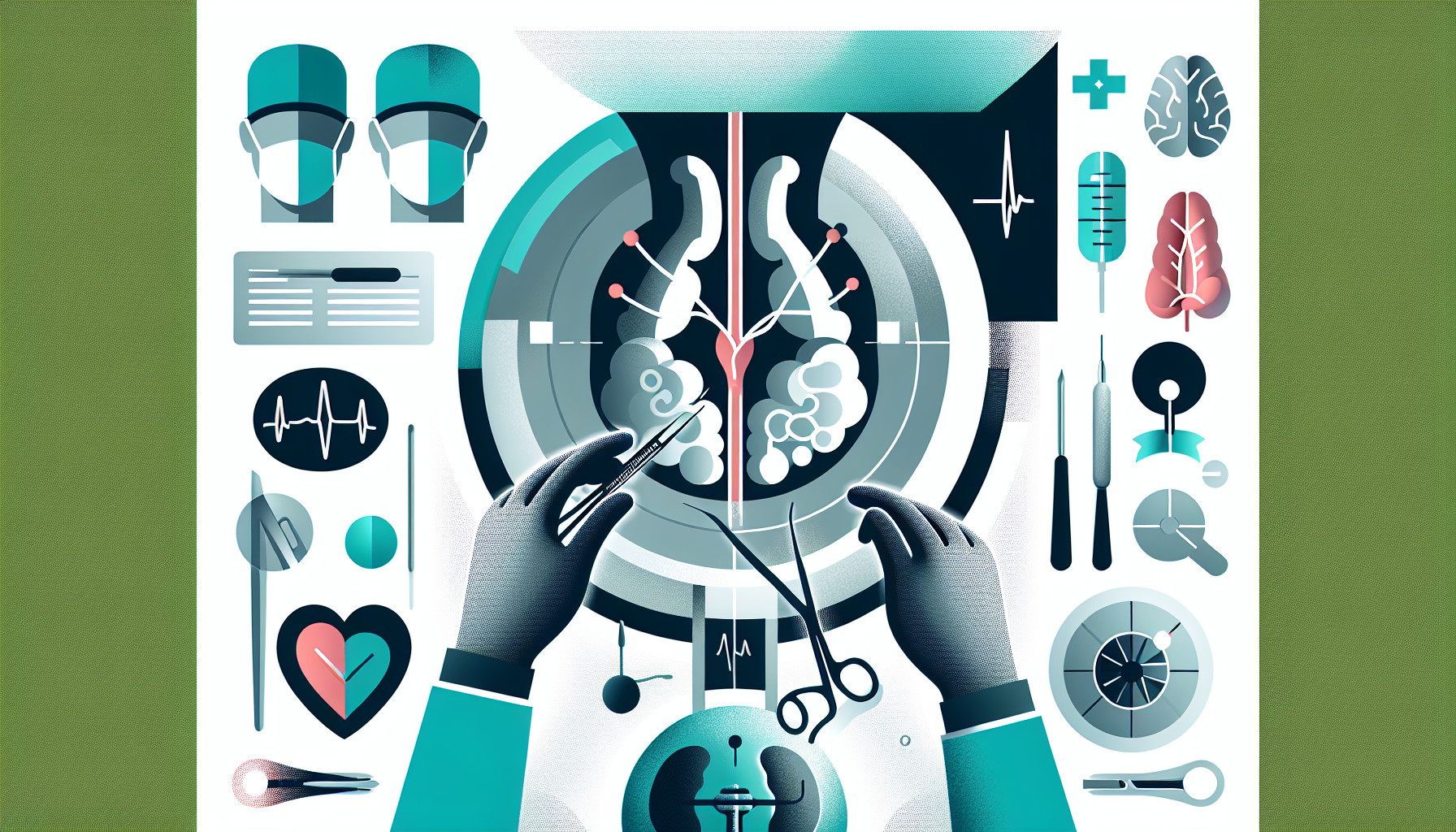Our Summary
This research paper discusses the issue of infection following the implantation of a penile prosthesis, which is a device used to treat erectile dysfunction. The study reviews all aspects of this problem, including the causes and risk factors, prevention methods, and management approaches.
The authors found that while infections are difficult to manage, they are relatively rare, with an occurrence rate of up to 3% after the first implant. However, if a patient needs to have a second implant, the risk of infection can increase to as high as 18%.
The research examines various factors that can contribute to an infection, both before and after surgery. Despite extensive study of these factors, there is no global consensus on certain topics.
In conclusion, while the penile prosthesis implant is a safe and effective treatment for erectile dysfunction, doctors must carefully follow all recommendations before, during, and after surgery to minimize the risk of infection. If an infection does occur, appropriate antibiotic treatment should be tailored to the specific patient and the identified pathogens.
FAQs
- What is the risk of infection after penile implant surgery?
- How can the risk of infection be minimized before, during, and after penile implant surgery?
- What is the protocol if an infection occurs after penile implant surgery?
Doctor’s Tip
One helpful tip a doctor might give to a patient about penile implant surgery is to carefully follow all pre-operative and post-operative instructions provided by the medical team. This can include maintaining good hygiene, taking prescribed antibiotics as directed, and attending all follow-up appointments to monitor for any signs of infection. It is also important to communicate any concerns or changes in symptoms to your healthcare provider promptly. By following these recommendations, patients can help reduce the risk of infection and ensure a successful outcome from the surgery.
Suitable For
Patients who are typically recommended for penile implant surgery are those who have tried other treatments for erectile dysfunction, such as oral medications or injections, and have not found success. Candidates for penile implant surgery may include:
- Men with severe erectile dysfunction that does not respond to other treatments
- Men with medical conditions such as diabetes, cardiovascular disease, or spinal cord injuries that make other treatments ineffective
- Men who have had prostate cancer treatment that has led to erectile dysfunction
- Men with Peyronie’s disease, a condition that causes curvature of the penis and can lead to erectile dysfunction
It is important for patients considering penile implant surgery to discuss their options with a urologist or other healthcare provider to determine if they are a good candidate for the procedure. Additionally, patients should be fully informed of the risks and benefits of penile implant surgery before making a decision.
Timeline
Before penile implant surgery, a patient typically undergoes a consultation with a urologist to discuss their options for treating erectile dysfunction. They may also undergo testing to determine if they are a suitable candidate for the procedure. Once the decision is made to proceed with surgery, the patient will receive preoperative instructions and may need to make lifestyle changes, such as quitting smoking or losing weight, to reduce the risk of complications.
After penile implant surgery, the patient will likely experience some discomfort and swelling in the surgical area. They will be given instructions on how to care for the incision site and will need to avoid strenuous activities for a period of time. Follow-up appointments will be scheduled to monitor the healing process and ensure that the implant is functioning properly. Over time, the patient will gradually resume sexual activity and should see an improvement in their erectile function.
Overall, the timeline for a patient before and after penile implant surgery involves careful preparation, surgery, recovery, and follow-up care to ensure the best possible outcome.
What to Ask Your Doctor
Some questions a patient should ask their doctor about penile implant surgery include:
- What are the potential risks and complications associated with penile implant surgery, including the risk of infection?
- What steps can be taken to minimize the risk of infection before, during, and after surgery?
- How common are infections following penile implant surgery, and what is the likelihood of experiencing an infection after the first implant versus a second implant?
- What symptoms should I watch out for that may indicate an infection, and when should I contact my doctor if I suspect an infection?
- How is an infection following penile implant surgery typically treated, and what is the success rate of treatment?
- Are there any factors that may increase my risk of developing an infection after penile implant surgery, such as certain medical conditions or lifestyle factors?
- What follow-up care will be necessary after surgery to monitor for any signs of infection or other complications?
- What should I do if I have concerns or questions about infection risk or symptoms after the surgery?
- Are there any specific precautions or lifestyle changes I should make to help prevent infections following penile implant surgery?
- Can you provide me with information or resources on penile implant surgery and infection risk, so I can better understand and prepare for the procedure?
Reference
Authors: Cosentino M, Bianco M, Ruiz-Castañé E, Iafrate M. Journal: Urol Int. 2020;104(7-8):542-545. doi: 10.1159/000508472. Epub 2020 Jun 15. PMID: 32541156
